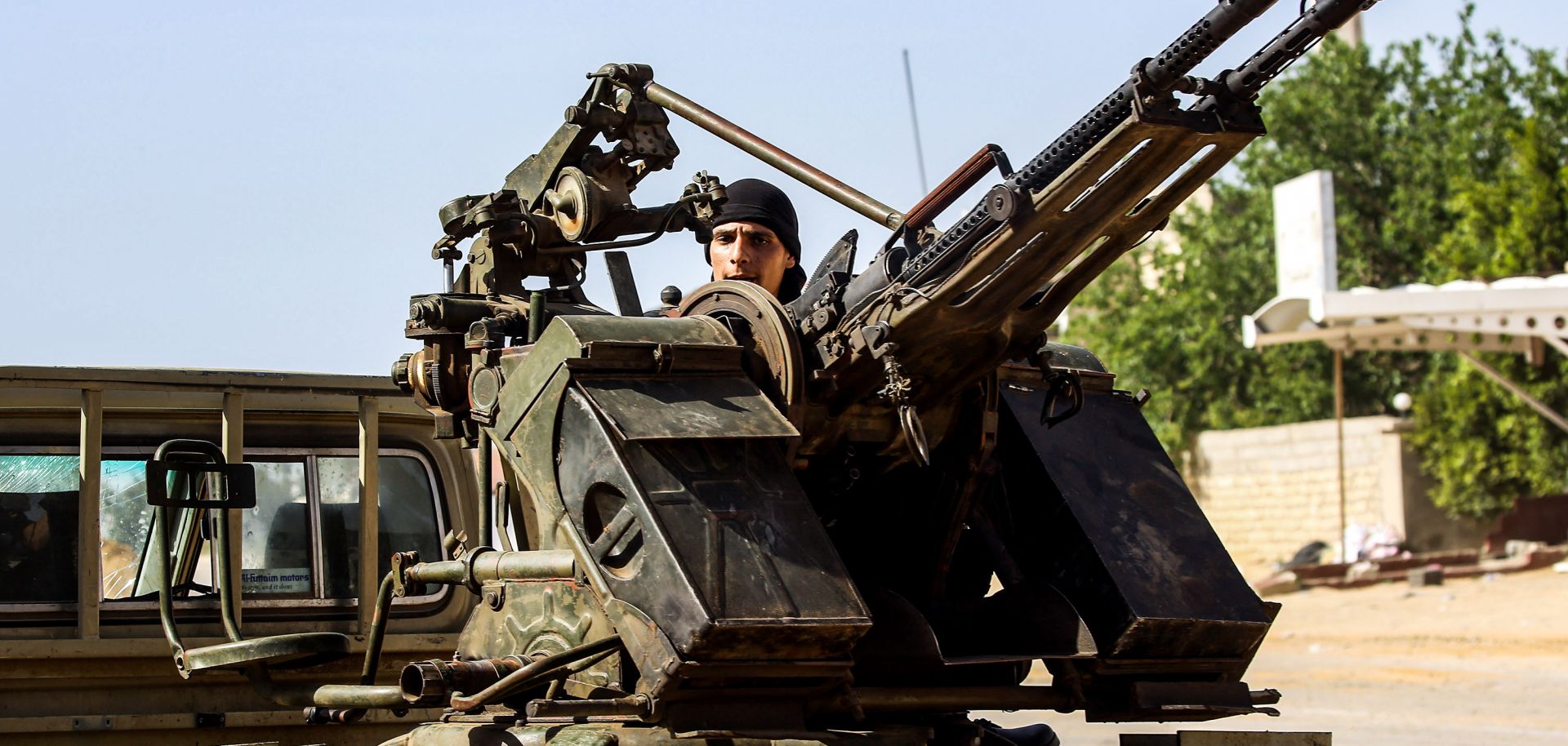ASSESSMENTS
In Libya, A New Offensive Could Disrupt the Oil Industry's Status Quo
Apr 12, 2019 | 05:15 GMT

A Libyan fighter loyal to the Government of National Accord mans a heavy weapon mounted on a pickup truck during clashes with Libyan National Army (LNA) forces south of Tripoli's suburb of Ain Zara on April 10. After a two-year cease-fire in Libya, LNA Field Marshal Khalifa Hifter launched an offensive on Tripoli on April 4.
(MAHMUD TURKIA/AFP/Getty Images)
Highlights
- Over the last three years, Khalifa Hifter and his Libyan National Army have gained a stranglehold over Libya's oil infrastructure.
- However, Hifter does not control the flow of oil revenue, which is managed through the Central Bank of Libya in Tripoli. Hifter will take steps to try to gain that control.
- Much of the central bank's oil revenue is distributed in the form of civil salaries throughout the country, which sometimes pay militias fighting Hifter.
- The longer the Libyan civil war continues, the more likely it is that Hifter's forces will consider cutting off oil production to limit financial support for his adversaries.
Subscribe Now
SubscribeAlready have an account?
